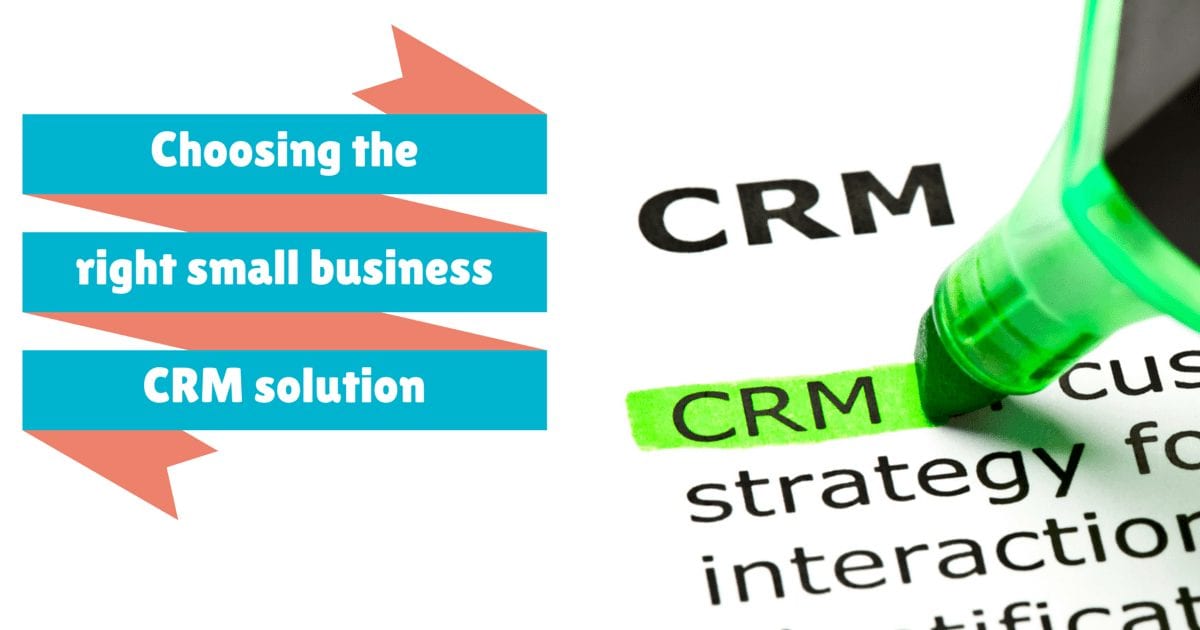When providing data entry virtual assistant services we come across many different customer relationship management (CRM) systems offering more and more features and functionality. When contemplating a CRM system for a small business, the one with the most capabilities will not necessarily be the best one for your business. It may be that you don’t need additional functionality or perhaps can’t use it because your business has not yet reached that level, and may not do for some time. Even if you know what you want from your CRM, getting what you want without paying for unnecessary bells and whistles can be difficult.
If you’re looking to invest in a CRM system, you need to determine the specification you want or need, research the options and get the best deal. For small business owners this can be a minefield with numerous factors such as quality, cost, benefits and return on investment to consider.
Here is our CRM guide for small businesses with the key areas to evaluate:
Know your requirements
You may wish to market your business via social media and therefore require the functionality to integrate social media campaigns with your CRM. Your sales activities may need flexibility to manipulate data, making good reporting tools a must. Ensure that you know what you do and don’t need as this can save you time, money and effort as the decision making process moves along.
What’s the cost?
Again it is important to find an arrangement which will suit your business’ developing requirements. You may come across very attractive introductory offers or discounts but don’t rush to these. Purchasing the cheapest deal you can find could mean your CRM system won’t be sufficient to support your business in the longer term. Ensure that these include help on the technical and support side. There are plenty of pricing plans to suit most budgets.
Cloud vs hosted
Cloud based simply means that the CRM system and its data is stored and accessed via the internet. The benefit to a cloud CRM is that it requires less IT overhead, plus it makes it easier to share data across multiple premises and manage backups and data recovery. Cloud CRM systems are often lighter in terms of functionality than hosted solutions (i.e. stored on your own system/computer) however for small businesses this is not necessarily a bad thing. Talk to the provider at the start of your research about what functionality is available in Cloud versus hosted solutions to avoid any technical or functionality problems later.
Package functionality
Ensure that you don’t spend money on functionality you don’t currently, or will never need. For example, CRM systems can be adapted for managing high volumes of customer data for business-to-consumer businesses, or lower volumes associated with business-to-business organisations. Small businesses rarely require the functionality that a full business-to-consumer system offers. However as your business grows, at each stage, your CRM needs to be capable of growing with it and be customisable for your needs.
Pre-set functions
Configuring a newly acquired software system can be costly, either in terms of time if done in-house or cost if outsourced. However, the majority of CRM systems have excellent pre-programmed functionality that is intuitive to most small business needs. When you are doing your research, look at what each system offers without the need for additional configuration. Many of these systems will also already work with other systems you are using and so will start adding value straight away.
Working with other platforms
Large enterprise CRMs often offer a lot of opportunity for customisation, however this can be detrimental to good integration with complimentary business software. Whilst larger corporations have the budget to develop integration in-house, small businesses need their CRM systems to integrate automatically with a range of business applications to avoid hefty support fees. It’s important to decide how you want your CRM to work with other applications, and use your research to determine which CRM packages meet those requirements as standard. You should also ensure you have access to good technical support should any integration process not go quite as smoothly as it should.
Intuitive operation
Ensure that you choose a system that is easy to pick up. Although employees will need training on the system you choose, if they find even the simple task difficult, for example daily data entry, you will find it difficult for them to take ownership of the system let alone start to use the more sophisticated functionality.
Ongoing product support
Like any other business, software companies can be subject to mergers, takeovers and acquisitions and some of their products or services may suffer as a consequence. Check a potential provider’s past performance and track record to ensure that you don’t get caught with a platform that may suffer in terms of technical support in the future.
Choosing the best CRM for small business can be a minefield so we hope this has given some insight into the areas to consider. If you are looking for a virtual assistant CRM service or would like to know how a remote personal assistant could help with other areas of your business feel free to call us on 0800 994 9016 or use our contact form in the menu above.

